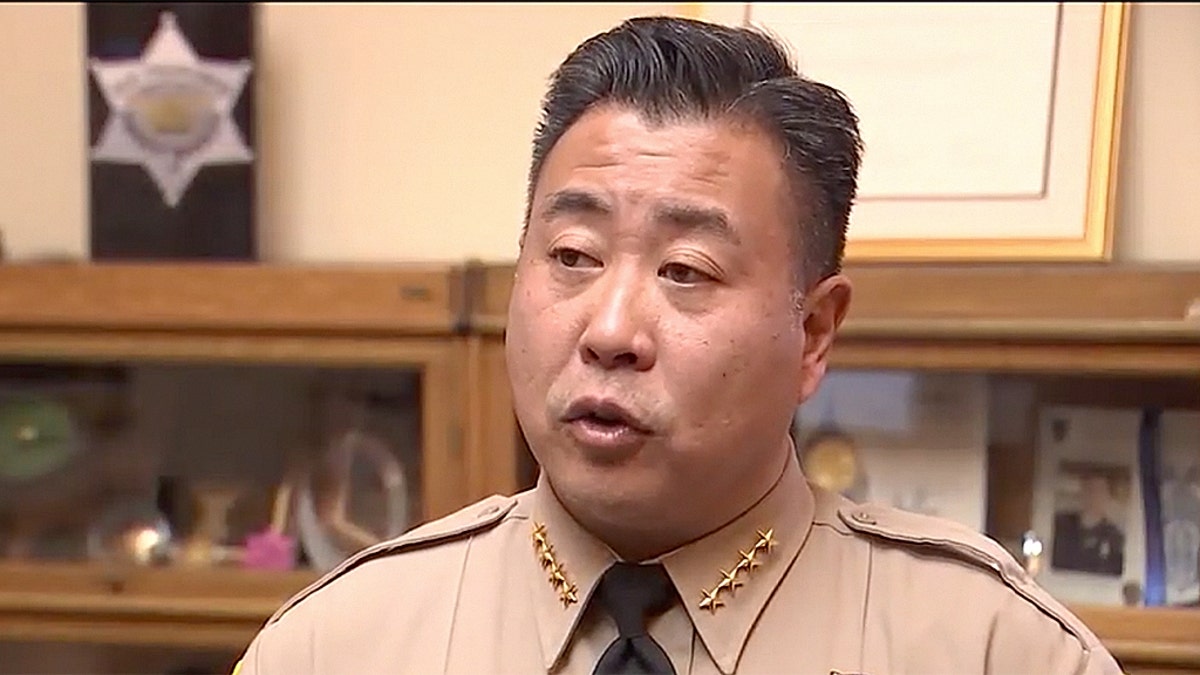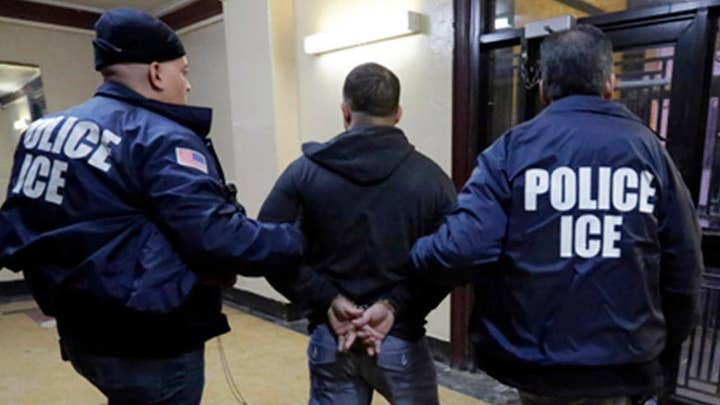Exclusive: Father who lost son to immigrant violence says Americans are ‘unsafe’ in sanctuary cities
Don Rosenberg, the father of Drew Rosenberg who was killed when his motorcycle was struck by an illegal immigrant without a driver’s license, says sanctuary city policies are making Americans unsafe.
San Francisco's newly minted sheriff said his officers won't help federal authorities deport undocumented immigrants despite increasing pressure from the Trump administration to crack down on people living illegally in U.S. sanctuary cities.
Paul Miyamoto, California's first Asian American sheriff, said going after undocumented immigrants seeking solace is not a priority.
"Our department is not involved in immigration enforcement," he told KTVU2. "We feel that it is a federal matter, and our realm of interest is public safety, and you can't really have a safe community if the community members are afraid to come to us to report crimes."
He added that he's not aware of the city ever turning someone in custody over to federal authorities and that he's not starting now.

San Francisco Sheriff Paul Miyamoto (FOX2)
The comments come as the Trump administration announced it was deploying members from its law enforcement tactical units serving on the southern border to sanctuary cities across the United States. The move is an escalation in the bitter battle between Trump and cities like San Francisco, Chicago and New York that have refused to work with federal immigration officials.
ICE's acting director Matthew Albence said the deployment is a necessary response to policies adopted by sanctuary cities.
ACTING ICE DIRECTOR ALBENCE ON TRUMP SANCTUARY CITY CRACKDOWN: THEY LEAVE US 'NO CHOICE'
Lawrence Payne, a spokesman for Customs and Border Protection, confirmed that the agency was sending 100 officers to work with ICE, which conducts arrests in the U.S. "in order to enhance the integrity of the immigration system, protect public safety and strengthen our national security."
Miyamoto and San Francisco Mayor London Breed said their refusal to cooperate also stems from security concerns.
The city's elected leaders will "continue to support our immigrant community and stand up for our city and we're putting resources toward accomplishing that goal," Breed said.
"We're being targeted on so many levels," she added. "But, the fact is, we're a strong city, we're a resilient city and we will fight against those attacks and we will protect the people of this city."
"We're being targeted on so many levels. But, the fact is we're a strong city, we're a resilient city and we will fight against those attacks and we will protect the people of this city."
San Francisco became the 13th jurisdiction in the United States to prohibit cooperation with federal immigration officials. Since 1989, it's become the epicenter of the sanctuary city movement, regularly provoking the ire of Trump and challenging his administration's campaign against undocumented immigrants.
Activist Amy Lin, who is undocumented, told the San Francisco Examiner that the city is "really reckoning with our definition of inclusion."
"Immigrants make up our neighbors, our friends and family, and to really name their rights has to be (the city') priority now," she said. "We need to make concrete changes."
Some activists say Trump's persistence has actually solidified support on local levels for sanctuary policies.
"The Board of Supervisors, and even to some extent the Mayor's Office, has been more unified in defending sanctuary because there's this clear outside threat that is absolutely racist, anti-immigrant and engaging in white nationalism," said Angela Chan, a former police commissioner and a criminal justice attorney at Asian Americans Advancing Justice.
San Francisco has won three lawsuits against the government between 2017 and 2019 to protect local sanctuary laws.
City officials said they don't know when an ICE raid could come, but they do not expect to get a head's up as in previous years.
CLICK HERE FOR THE FOX NEWS APP
In nearby Oakland, another sanctuary city, Mayor Libby Schaaf was called out by the Justice Department in 2018 after she publicly tipped off the immigrant community about an ICE raid less than 24 hours before it began. Schaaf was taken to task over her decision and critics claimed her actions amounted to obstruction of justice. She defended herself and said she did not learn about the raid through government, but instead through "multiple credible sources."























